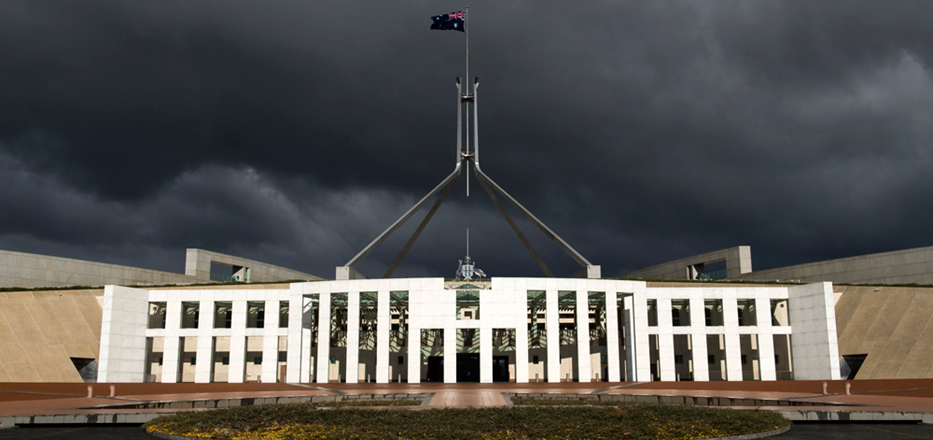
On the last sitting day of last year, the government introduced a suite of new legislation into parliament. Malcolm Turnbull characterised the bills as “legislation to counter the threat of foreign states exerting improper influence over our system of government and our political landscape.
But, buried in these new bills are sweeping changes to Australia’s secrecy laws that go far beyond the influence of foreign states. These are laws that could see journalists and doctors imprisoned for up to 20 years for disclosing government information.
These changes have huge implications for our democracy, and we need to be talking about them.
In 2014, the government pursued a number of Save the Children employees working in the Nauru Regional Processing Centre for disclosing information about the conditions in the centre.
Secrecy laws regulate when people can use and disclose government information. Of course, there is public interest in protecting some types of information. Sensitive security documents, for example, can lose effectiveness if they become public knowledge. For the most part though, access to information is necessary for voters to hold their representatives to account. Any law that restricts this principle warrants serious scrutiny.
Secrecy laws — when they go wrong — can have a real and detrimental impact on our democracy. Last year, Liberty Victoria’s Rights Advocacy Project (RAP) reported that secrecy laws were operating as a barrier to people reporting abuse that they had witnessed in offshore processing centres. For example, in 2014, the government pursued a number of Save the Children employees working in the Nauru Regional Processing Centre for disclosing information about the conditions in the centre.
Secrecy laws also have implications for journalists who receive leaked material. Think, for example, of the Nauru files — a set of more than 2,000 incident reports from the Nauru detention centre exposing incidents of self-harm, sexual assaults, child abuse and violence. This reporting is crucial to informed public debate; without it, we don’t know what the government is doing in our name. Any law that could criminalise the publishing of this material warrants serious concern.
Currently, the Crimes Act 1914 (Cth) contains two offences that criminalise breaches of secrecy obligations; that is, they introduce criminal sanctions to obligations that Commonwealth officers already owe. Section 79 criminalises the disclosure of official secrets, and is punishable by seven years in prison. Section 70 is much broader. This section criminalises unauthorised disclosure of any fact a Commonwealth officer has learned or any document they have obtained by virtue of their position that they are under a duty not to disclose. Breach of this provision can result in up to two years imprisonment.
Given the draconian nature of the current laws, there have been numerous calls for reform. Section 70 in particular requires reform, because it fails to outline the type of information that is prohibited from disclosure: it could apply to any unauthorised disclosure regardless of the nature of the information, as long as that information came into the possession of the officer by virtue of their office; it could also apply to anything from leaks of cabinet discussions to the living conditions in an immigration detention centre on Manus Island.
While the current section 70 applies only to facts or documents, the new definition of information includes opinion and advice that is not in documentary form.
Under the proposed laws, there are a number of new offences separated into two categories: those dealing with “inherently harmful information” and those dealing with conduct “causing harm to Australia’s interests”. Narrowing the offences to apply to certain types of information or actions that have a sufficiently serious outcome is not necessarily a bad thing, in fact RAP and other bodies, such as the Australian Law Reform Commission, have been calling for a narrowing of the offences along these lines for long a time.
The problem lies with what is understood to be inherently harmful information and what is understood to be sufficiently harmful to Australia’s interests. It is not hard to conceive that the government could argue disclosure of information about the conditions on Manus Island harm Australia’s relations with Papua New Guinea and that this falls within the definition.
The definition of ‘information’ is even broader. While the current section 70 applies only to facts or documents, the new definition of information includes opinion and advice that is not in documentary form.
Most worryingly, these new offences apply to everyone – not just Commonwealth officers.
Journalists, asylum seekers, and advocacy groups, like RAP, are included in these provisions. The bill does introduce a new defence open to journalists if the information is in the public interest and is dealt with in that person’s capacity as a journalist engaged in fair and accurate reporting; however, the journalist has the evidential burden of proof. It is not difficult to imagine this having a chilling effect on public debate.
What’s more, criminal penalties under these provisions are substantially harsher. Some new provisions carry maximum prison terms of 15 years. The law also sets out aggravating circumstances, which, if present, make an act more serious, and in some cases increase the maximum penalty to 20 years imprisonment.
The Bill has been referred to the Parliamentary Joint Committee on Intelligence and Security and the report is due next month.
The advent of laws that can send journalists and doctors to prison for up to 20 years is a worrying attack on our democracy and it is something we all need to be talking about and scrutinising.




